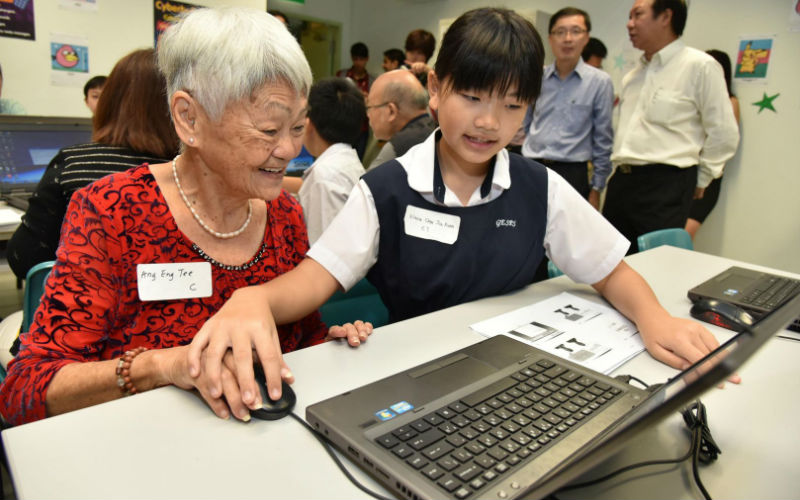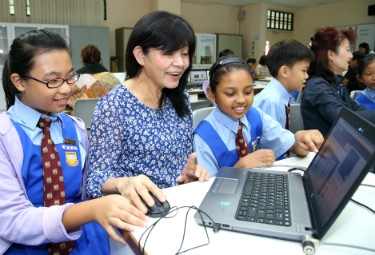The Infocomm Media Development Authority (IMDA), together with the support from corporate sponsors, will provide 900 pre-qualified low-income households the opportunity to sign up for home broadband and tablets, at no cost.
The sponsors are POSB, NTUC FairPrice Foundation and NetLink Trust.
The other low-income households can also enjoy subsidised home broadband with the option to own a tablet, according to a joint press statement by IMDA, Lions Befrienders (LB) and POSB. This tripartite collaboration is part of IMDA’s Digital Inclusion efforts to empower the vulnerable segments with access to technology.
This new IM Bonding Learning Project will provide 1-to-1 dedicated tutorials for seniors from low-income households to learn how to use the tablet device and to navigate the Internet.
Senior Minister of State for the Ministry of Communications and Information & Ministry of Education, Dr Janil Puthucheary, attended the session to encourage and recognise the efforts of the seniors who had stepped forward to learn.
“As IMDA strives towards a digital economy for Singapore, we are also nurturing a digital society where everyone is connected, said Tan Kiat How, Chief Executive, IMDA. "With the support from partners in the private and community sectors, like POSB and Lions Befrienders, we are able to help more low-income families access the internet and benefit from digital services."
Participants can have the chance to try out the tablet, and learn different useful IT skills. These include basic introduction to the device and Internet, Digital TV, e-Communication, social media, POSB’s Digibank and Paylah! apps, and more.
“As the People’s Bank, POSB has served generations of Singaporeans and together with many of our seniors today, we hold an important role in many of our nation building initiatives," said Susan Cheong, Head of POSB. "The world is becoming more digital and we want to play our part to ensure that our seniors are not left behind."
The Home Access Programme is part of the Digital Inclusion effort under IMDA. To-date about 8,000 low-income households 3 have benefitted from the programme since 2014.




